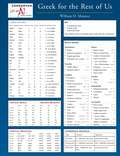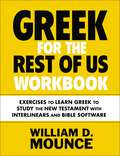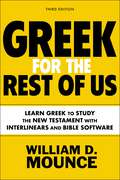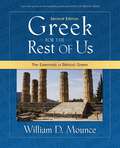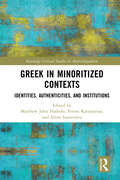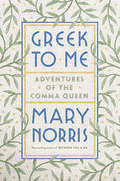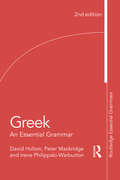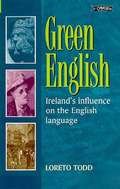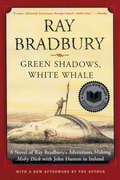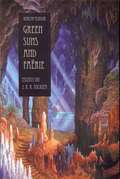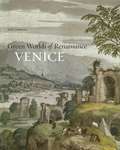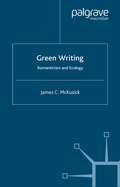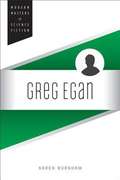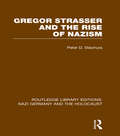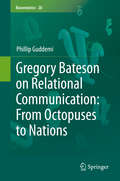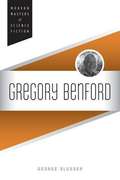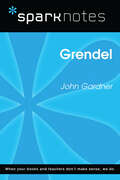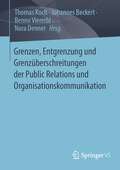- Table View
- List View
Greek for the Rest of Us Laminated Sheet: The Essentials Of Biblical Greek
by William D. MounceMany people want to learn Greek in order to better understand the Bible, but very few are able to spend the numerous years required to master Biblical Greek, even those who have a seminary education.The get-an-A laminated sheet for Greek for the Rest of Us by William Mounce is a critical part of acquainting students with the essentials of the language and deepening their understanding of God’s Word.Developed by renowned Greek teacher William Mounce, this Greek for the Rest of Us Laminated Sheet will help students: recite the Greek alphabet; read and pronounce Greek words; learn the Greek noun and verbal system; conduct Greek word studies; decipher why translations are different; see the author’s flow of thought and central message; and read better commentaries.
Greek for the Rest of Us Workbook: Exercises to Learn Greek to Study the New Testament with Interlinears and Bible Software
by William D. MounceA WORKBOOK to Help You Learn the Essentials of Biblical Greek So You Can Study the New Testament More DeeplyThe Greek for the Rest of Us Workbook is a companion to Greek for the Rest of Us, Third Edition (sold separately) by William D. Mounce. This workbook provides exercises to help readers practice and review, so they learn the essentials of biblical Greek more effectively and can study the New Testament more deeply.Greek for the Rest of Us, Third Edition is crash-course on "Greek for the rest of us" that acquaints the reader with the essentials of the language so they can study the New Testament more deeply. Readers will gain a sound knowledge of the fundamentals of Greek and learn how to use tools that will add muscle to their Bible studies.Readers using the Greek for the Rest of Us Workbook in conjunction with Greek for the Rest of Us, Third Edition will learn to:Read and pronounce Greek wordsLearn the fundamentals of the Greek noun and verb systemConduct effective Greek word studiesLearn the basics of Greek exegesis for biblical interpretationUnderstand why translations are different Read better commentariesBe comfortable using reverse and traditional interlinearsUnderstand the information displayed by biblical softwareThe Greek for the Rest Us Workbook will enhance your learning experience with exercises to help you practice and reinforce the concepts you are learning in Greek for the Rest of Us, Third Edition.
Greek for the Rest of Us, Third Edition: Learn Greek to Study the New Testament with Interlinears and Bible Software
by William D. MounceLearn the Essentials of Biblical Greek So You Can Study the New Testament More DeeplyThis newly revised third edition of Greek for the Rest of Us by Greek instructor William Mounce is crash-course on "Greek for the rest of us" that acquaints the reader with the essentials of the language so they can study the New Testament more deeply. Readers will gain a sound knowledge of the fundamentals of Greek and learn how to use tools that will add muscle to their Bible studies.In Greek for the Rest of Us readers will learn to:Read and pronounce Greek wordsLearn the fundamentals of the Greek noun and verb systemConduct effective Greek word studiesLearn the basics of Greek exegesis for biblical interpretationUnderstand why translations are differentRead better commentariesBe comfortable using reverse and traditional interlinearsUnderstand the information displayed by biblical softwareFor anyone interested in seriously studying the New Testament, Greek for the Rest of Us is your gateway to learning the skills and tools you need to accomplish your goals. You can enhance your learning experience even more with the Greek for the Rest Us Workbook (sold separately) which contains exercises to help practice and reinforce the concepts you are learning in the main book.
Greek for the Rest of Us: The Essentials of Biblical Greek
by William D. MounceIf you’d love to learn Greek so you can study your Bible better, then this newly revised second edition of Greek for the Rest of Us is foryou. Developed by renowned Greek teacher William Mounce, this revolutionarycrash-course on “Greek for the rest of us” will acquaint you with the essentials of the language and deepen your understanding of God’s Word. You’ll gain a sound knowledge of Greek, and you’ll learn how to use tools that will add muscle to your Bible studies. This book is divided into three major sections (Foundational Greek, Church Greek, and Functional Greek), each of which builds on the previous section and takes you to the next level. Depending on which levels you take, the book will teach you how to: Read and pronounce Greek words Learn the fundamentals of the Greek noun and verb system Conduct effective Greek word studies Learn the basics of Greek exegesis for biblical interpretation Decipher why translations are different Read better commentaries Be comfortable using reverse and traditional interlinears Understand the information displayed by biblical software
Greek in Minoritized Contexts: Identities, Authenticities, and Institutions (Routledge Critical Studies in Multilingualism)
by Matthew John Hadodo Petros Karatsareas Elena IoannidouThis volume examines constructions of Greekness and Greek-speakerhood in geographical and sociohistorical contexts where Greek speakers are minoritised, and Greek is not hegemonic.Authors explore the sociolinguistic outcomes that arise from minoritisation, distant and more recent history, migration, and the proliferation of digital technologies for communication in the 21st century. Set against the backdrops of Albania, Australia, Canada, Cyprus, Sweden, Turkey, and the UK, the volume chapters consider the manifestations, conceptualisations, and negotiations of linguistic authenticity; the construction of identities; and the impact of institutions such as Greek language schools as well as families on local sociolinguistic landscapes and dynamics. Particular attention is given to the confrontations between competing language forms, practices, and repertoires resulting from the contact between standardised and non-standardised varieties of Greek as well as to communities that are distant from the influence of institutions where Standard Greek or other local Greek norms prevail.The book is of interest to academic specialists and graduate students in sociolinguistics, applied linguistics, bi-/multilingualism, diaspora studies, linguistic anthropology, linguistic ethnography, social interaction, language contact, and language and culture – with a special focus on Greek.
Greek to Me: Adventures Of The Comma Queen
by Mary NorrisThe Comma Queen returns with a buoyant book about language, love, and the wine-dark sea. In her New York Times bestseller Between You & Me, Mary Norris delighted readers with her irreverent tales of pencils and punctuation in The New Yorker’s celebrated copy department. In Greek to Me, she delivers another wise and funny paean to the art of self-expression, this time filtered through her greatest passion: all things Greek. Greek to Me is a charming account of Norris’s lifelong love affair with words and her solo adventures in the land of olive trees and ouzo. Along the way, Norris explains how the alphabet originated in Greece, makes the case for Athena as a feminist icon, goes searching for the fabled Baths of Aphrodite, and reveals the surprising ways Greek helped form English. Filled with Norris’s memorable encounters with Greek words, Greek gods, Greek wine—and more than a few Greek men—Greek to Me is the Comma Queen’s fresh take on Greece and the exotic yet strangely familiar language that so deeply influences our own.
Greek: An Essential Grammar of the Modern Language (Current Issues In Linguistic Theory Ser. #117)
by David Holton Peter Mackridge Irene Philippaki-WarburtonGreek: An Essential Grammar is a concise and user-friendly reference guide to modern Greek. It presents a fresh and accessible description of the language in short, readable sections. Explanations are clear and supported by examples throughout. This new edition has been revised and updated to present an accurate and accessible description of the most important aspects of modern Greek. Features include: clear and up-to-date examples special attention to those points which often cause problems to English-speaking learners Greek/English comparisons and contrasts highlighted throughout. Greek: An Essential Grammar is ideal for learners involved in independent study and for students in schools, colleges, universities and adult classes of all types. Levels CEFR scale A1-B2 and ACTFL level Low-Intermediate to Advanced.
Green English: Ireland's Influence on the English Language
by Loreto ToddGreen English explores the origins and development of English in Ireland. It shows how Ireland has moulded English; how it has produced the second oldest world literature in the language; and how Irish emigrants, missionaries, teachers and writers have influenced English worldwide. It includes a dictionary of words that have resulted from this interaction.
Green Magic: The World’s Best Fairy Tales Collected and Arranged by Romer Wilson
by Jack Zipes Violet BruntonWith a Preface and biographies from Jack Zipes, as well as the original illustrations by Violet Brunton, this collection of fairy tales originally published by the award-winning Romer Wilson – Green Magic (1928), Silver Magic (1929), and Red Magic (1930) – offers a combination of classic fairy tales, alongside lesser-known, global and diverse tales. Green Magic contains many traditional fairy tales, including “Rapunzel” by Grimm, “Ali Baba” by Diyab and Galland, and “Puss in Boots” by Perrault, as well as previously unknown tales, such as “The Golden Twins” by Iperescu and “The Brotherless Girl” by an anonymous author. It was Romer Wilson’s intention to combine the familiar with the unknown, and introduce authors and cultures from a variety of countries. As a researcher, she uncovered a remarkable amount of stories from other countries that remain unknown today. The collection gives voice to unique and intriguing tales that inspire children to have a better understanding of how people and their stories are alike despite major differences. Through his Preface and commentary, Jack Zipes shows how all three books are a means to bring people together in the name of peace and justice. These books will therefore be of interest to anyone researching or studying fairy tales, folklore, and children’s literature, as well as global or comparative literature and social justice.
Green Shadows, White Whale: A Novel of Ray Bradbury's Adventures Making Moby Dick with John Huston in Ireland
by Ray BradburyIn 1953, the brilliant but terrifying titan of cinema John Huston summons the young writer Ray Bradbury to Ireland. The apprehensive scribe's quest is to capture on paper the fiercest of all literary beasts -- Moby Dick -- in the form of a workable screenplay so the great director can begin filming. But from the moment he sets foot on Irish soil, the author embarks on an unexpected odyssey. Meet congenial IRA terrorists, tippling men of the cloth impish playwrights, and the boyos at Heeber Finn's pub. In a land where myth is reality, poetry is plentiful, and life's misfortunes are always cause for celebration, Green Shadows, White Whale is the grandest tour of Ireland you'll ever experience -- with the irrepressible Ray Bradbury as your enthusiastic guide.
Green Shakespeare: From Ecopolitics to Ecocriticism (Accents on Shakespeare)
by Gabriel EganEcocriticism, a theoretical movement examining cultural constructions of Nature in their social and political contexts, is making an increasingly important contribution to our understanding of Shakespeare’s plays. Gabriel Egan's Green Shakespeare presents: an overview of the concept of ecocriticism detailed ecocritical readings of Henry V, Macbeth, As You Like It, Antony & Cleopatra, King Lear, Coriolanus, Pericles, Cymbeline, The Winter’s Tale and The Tempest analysis of themes such as nature and human society; food and biological nature; the supernatural and the weather a bold argument for a contemporary ‘EcoShakespeare’, taking into account the environmental and political implications of globalization and intellectual property laws. Crossing the boundaries of literary and cultural studies to draw in politics, philosophy and ecology, this volume not only introduces one of the most lively areas of contemporary Shakespeare studies, but also puts forward a convincing case for Shakespeare’s continuing relevance to contemporary theory.
Green Suns And Faerie: Essays On J. R. R. Tolkien
by Verlyn FliegerA major contribution to the growing body of Tolkien scholarship <P><P> With the release of Peter Jackson's The Lord of the Rings movie trilogy and forthcoming film version of The Hobbit, J. R. R. Tolkien's popularity has never been higher. In Green Suns and Faërie, author Verlyn Flieger, one of world's foremost Tolkien scholars, presents a selection of her best articles--some never before published--on a range of Tolkien topics. <P><P> The essays are divided into three distinct sections. The first explores Tolkien's ideas of sub-creation-the making of a Secondary World and its relation to the real world, the second looks at Tolkien's reconfiguration of the medieval story tradition, and the third places his work firmly within the context of the twentieth century and "modernist" literature. With discussions ranging from Tolkien's concepts of the hero to the much-misunderstood nature of Bilbo's last riddle in The Hobbit, Flieger reveals Tolkien as a man of both medieval learning and modern sensibility--one who is deeply engaged with the past and future, the regrets and hopes, the triumphs and tragedies, and above all the profound difficulties and dilemmas of his troubled century. <P><P> Taken in their entirety, these essays track a major scholar's deepening understanding of the work of the master of fantasy. Green Suns and Faërie is sure to become a cornerstone of Tolkien scholarship.
Green Thoughts, Green Shades: Essays by Contemporary Poets on the Early Modern Lyric
by Jonathan F. S. PostThe book enlists the analytic and verbal power of some of today's most celebrated poets to illuminate from the inside out a number of the greatest lyric poets writing in English during the sixteenth and seventeenth century. Written by people who spend much of their time thinking in verse and about verse, these original essays herald the return of the early modern lyric as crucial to understanding the present moment of poetry in the United States.
Green Victorians
by Fredrik Albritton Jonsson Vicky AlbrittonFrom Henry David Thoreau to Bill McKibben, critics and philosophers have long sought to demonstrate how a sufficient life--one without constant, environmentally damaging growth--might still be rich and satisfying. Yet one crucial episode in the history of sufficiency has been largely forgotten. Green Victorians tells the story of a circle of men and women in the English Lake District who attempted to create a new kind of economy, turning their backs on Victorian consumer society in order to live a life dependent not on material abundance and social prestige but on artful simplicity and the bonds of community. At the center of their social experiment was the charismatic art critic and political economist John Ruskin. Albritton and Albritton Jonsson show how Ruskin's followers turned his theory into practice in a series of ambitious local projects ranging from hand spinning and woodworking to gardening, archaeology, and pedagogy. This is a lively yet unsettling story, for there was a dark side to Ruskin's community as well--racist thinking, paternalism, and technophobia. Richly illustrated, Green Victorians breaks new ground, connecting the ideas and practices of Ruskin's utopian community with the problems of ethical consumption then and now.
Green Worlds of Renaissance Venice
by Jodi CranstonFrom celebrated gardens in private villas to the paintings and sculptures that adorned palace interiors, Venetians in the sixteenth century conceived of their marine city as dotted with actual and imaginary green spaces. This volume examines how and why this pastoral vision of Venice developed.Drawing on a variety of primary sources ranging from visual art to literary texts, performances, and urban plans, Jodi Cranston shows how Venetians lived the pastoral in urban Venice. She describes how they created green spaces and enacted pastoral situations through poetic conversations and theatrical performances in lagoon gardens; discusses the island utopias found, invented, and mapped in distant seas; and explores the visual art that facilitated the experience of inhabiting verdant landscapes. Though the greening of Venice was relatively short lived, Cranston shows how the phenomenon had a lasting impact on how other cities, including Paris and London, developed their self-images and how later writers and artists understood and adapted the pastoral mode.Incorporating approaches from eco-criticism and anthropology, Green Worlds of Renaissance Venice greatly informs our understanding of the origins and development of the pastoral in art history and literature as well as the culture of sixteenth-century Venice. It will appeal to scholars and enthusiasts of sixteenth-century history and culture, the history of urban landscapes, and Italian art.
Green Worlds of Renaissance Venice
by Jodi CranstonFrom celebrated gardens in private villas to the paintings and sculptures that adorned palace interiors, Venetians in the sixteenth century conceived of their marine city as dotted with actual and imaginary green spaces. This volume examines how and why this pastoral vision of Venice developed.Drawing on a variety of primary sources ranging from visual art to literary texts, performances, and urban plans, Jodi Cranston shows how Venetians lived the pastoral in urban Venice. She describes how they created green spaces and enacted pastoral situations through poetic conversations and theatrical performances in lagoon gardens; discusses the island utopias found, invented, and mapped in distant seas; and explores the visual art that facilitated the experience of inhabiting verdant landscapes. Though the greening of Venice was relatively short lived, Cranston shows how the phenomenon had a lasting impact on how other cities, including Paris and London, developed their self-images and how later writers and artists understood and adapted the pastoral mode.Incorporating approaches from eco-criticism and anthropology, Green Worlds of Renaissance Venice greatly informs our understanding of the origins and development of the pastoral in art history and literature as well as the culture of sixteenth-century Venice. It will appeal to scholars and enthusiasts of sixteenth-century history and culture, the history of urban landscapes, and Italian art.
Green Writing: Romanticism and Ecology
by James McKusickThis book describes the emergence of ecological understanding among the English Romantic poets, arguing that this new holistic paradigm offered a conceptual and ideological basis for American environmentalism. Coleridge, Wordsworth, Blake, John Clare, and Mary Shelley all contributed to the fundamental ideas and core values of the modern environmental movement; their vital influence was openly acknowledged by Emerson, Thoreau, John Muir, and Mary Austin. By revealing hitherto unsuspected links between English and American nature writers, this book elucidates the Romantic origins of American environmentalism.
Green-Light Your Book: How Writers Can Succeed in the New Era of Publishing
by Brooke WarnerGreen-Light Your Book is a straight-shooting guide to a changing industry. Written for aspiring authors, previously published authors, and independent publishers, it explains the ever-shifting publishing landscape and helps indie authors understand that they&’re up against the status quo, and how to work within the system but also how to subvert the system in order to succeed. Publishing expert and independent publisher Brooke Warner is fearless in her critique of an industry that&’s lost its mandate, and in so doing has opened the door wide for indie publishers to thrive. While she does not shy away from calling out the bias against indie authors, she also asserts that it&’s never been a more exciting time to be in book publishing—and her passion and enthusiasm are contagious. &“If you&’re going to green-light your work, you have to wow,&” Warner writes. But to surpass expectations, you also need to be a student of publishing and to be able to hold your own with book buyers, event coordinators, librarians, wholesalers, distributors, and reviewers. Green-Light Your Book seeks to equip authors and publishers with the language, knowledge, and skill sets they need to play big.
Greene's Tu Quoque or, The Cittie Gallant (Routledge Revivals)
by John CookePublished in 1984: Greene's Tu Quoque, or, The Cittie Gallant is a satirical play from 1611 which was first presented at court by the Queen’s players.
Greg Egan
by Karen BurnhamGreg Egan (1961- ) publishes works that challenge readers with rigorous, deeply-informed scientific speculation. He unapologetically delves into mathematics, physics, and other disciplines in his prose, putting him in the vanguard of the hard science fiction renaissance of the 1990s. A working physicist and engineer, Karen Burnham is uniquely positioned to provide an in-depth study of Egan's science-heavy oeuvre. Her survey of the author's career covers novels like Permutation City and Schild's Ladder and the Hugo Award-winning novella "Oceanic," analyzing how Egan used cutting-edge scientific theory to explore ethical questions and the nature of humanity. As Burnham shows, Egan's collected works constitute a bold artistic statement: that narratives of science are equal to those of poetry and drama, and that science holds a place in the human condition as exalted as religion or art. The volume includes a rare interview with the famously press-shy Egan covering his works, themes, intellectual interests, and thought processes.
Gregor Strasser and the Rise of Nazism (Routledge Library Editions: Nazi Germany and the Holocaust)
by Peter D. StachuraThe most influential and substantial leader, after Hitler, in the pre-1933 National Socialist Party was Gregor Strasser. This book (originally published in 1983 but as yet not superseded) is a comprehensive and scholarly assessment of Strasser’s significant and ultimately tragic career, based largely on previously unpublished German archival material. Strasser’s importance as a Nazi propagandist, organiser, ideologue and spokesman is examined and the analysis and interpretation which follow are fundamentally revisionist in that many of the accepted ideas about Strasser’s career are challenged and shown to be untenable. The book provides important insights into an interesting personality which in turn considerably enhances our understanding of the character of early National Socialism and the politics of the Weimar Republic.
Gregory Bateson on Relational Communication: From Octopuses to Nations (Biosemiotics #20)
by Phillip GuddemiThis book develops Gregory Bateson’s ideas regarding “communication about relationship” in animals and human beings, and even nations. It bases itself on Bateson’s theory of relational communication, as he described it in the zoosemiotics of octopus, mammals, birds, and human beings. This theory includes, for example, the roles of metaphor, play, analog and digital communication, metacommunication, and Laws of Form. It is organized around a letter from Gregory Bateson to his fellow cybernetic thinker Warren McCulloch at the time of the Cuban Missile Crisis. In this letter Bateson argued that what we would today call zoosemiotics, including Bateson’s own (previously unpublished) octopus research, should be made a basis for understanding the relationship between the two blocs of the Cold War. Accordingly the book shows how Bateson understood interactive processes in the biosemiotics of conflict and peacemaking, which are analyzed using examples from recent animal studies, from primate studies, and from cultural anthropology. The Missile Crisis itself is described in terms of Bateson’s critique of game theory which he felt should be modified by an understanding of the zoosemiotics of relational communication. The book also includes a previously unpublished piece by Gregory Bateson on wolf behavior and metaphor/ abduction.
Gregory Benford
by George SlusserGregory Benford is perhaps best known as the author of Benford's law of controversy: "Passion is inversely proportional to the amount of real information available." That maxim is a quotation from Timescape, Benford's Nebula and Campbell Award-winning 1980 novel, which established his work as an exemplar of "hard science fiction," dedicated to working out the consequences of modern science rather than substituting pseudoscience for fantasy. An astrophysicist by training and profession, Benford published more than twenty novels, over one hundred short stories, some fifty essays, and myriad articles that display both his scientific rigor as well as a recognition of literary traditions. In this study, George Slusser explores the extraordinary, seemingly inexhaustible display of creative energy in Gregory Benford's life and work. By identifying direct sources and making parallels with other works and writers, Slusser reveals the vast scope of Benford's knowledge, both of literature and of the major scientific and philosophical issues of our time. Slusser also discusses Benford's numerous scientific articles and nonfiction books and includes a new interview with Benford.
Grendel (SparkNotes Literature Guide Series)
by SparkNotesGrendel (SparkNotes Literature Guide) by John Gardner Making the reading experience fun! Created by Harvard students for students everywhere, SparkNotes is a new breed of study guide: smarter, better, faster.Geared to what today's students need to know, SparkNotes provides:chapter-by-chapter analysis explanations of key themes, motifs, and symbols a review quiz and essay topics Lively and accessible, these guides are perfect for late-night studying and writing papers.
Grenzen, Entgrenzung und Grenzüberschreitungen der Public Relations und Organisationskommunikation
by Thomas Koch Johannes Beckert Benno Viererbl Nora DennerDer insbesondere durch die Digitalisierung ausgelöste Medienwandel und die daraus erwachsenen Veränderungsprozesse für die Public Relations und Organisationskommunikation führ(t)en zum Verschwimmen zahlreicher Grenzen, die früher deutlicher zu erkennen waren. Der vorliegende Sammelband nimmt in drei Themenblöcken diese Grenzverschiebungen und die daraus resultierenden Veränderungsprozesse in den Blick. Erstens wird die Entgrenzung des Berufsfelds der PR und Organisationskommunikation betrachtet, wobei insbesondere die Vermischung von Journalismus und strategischer Kommunikation im Fokus steht. Zweitens fokussiert der Band die Entgrenzung spezifischer Bereiche und Instrumente der strategischen Kommunikation (z.B. Wahlkampfkommunikation, Markt- und Markenkommunikation, Beteiligungsverfahren). Drittens gehen Beiträge in dem Band Fragen nach ethisch-normativen Grenzverschiebungen und -überschreitungen in der strategischen Kommunikation nach und diskutieren, wie diese neu verhandelt werden.
